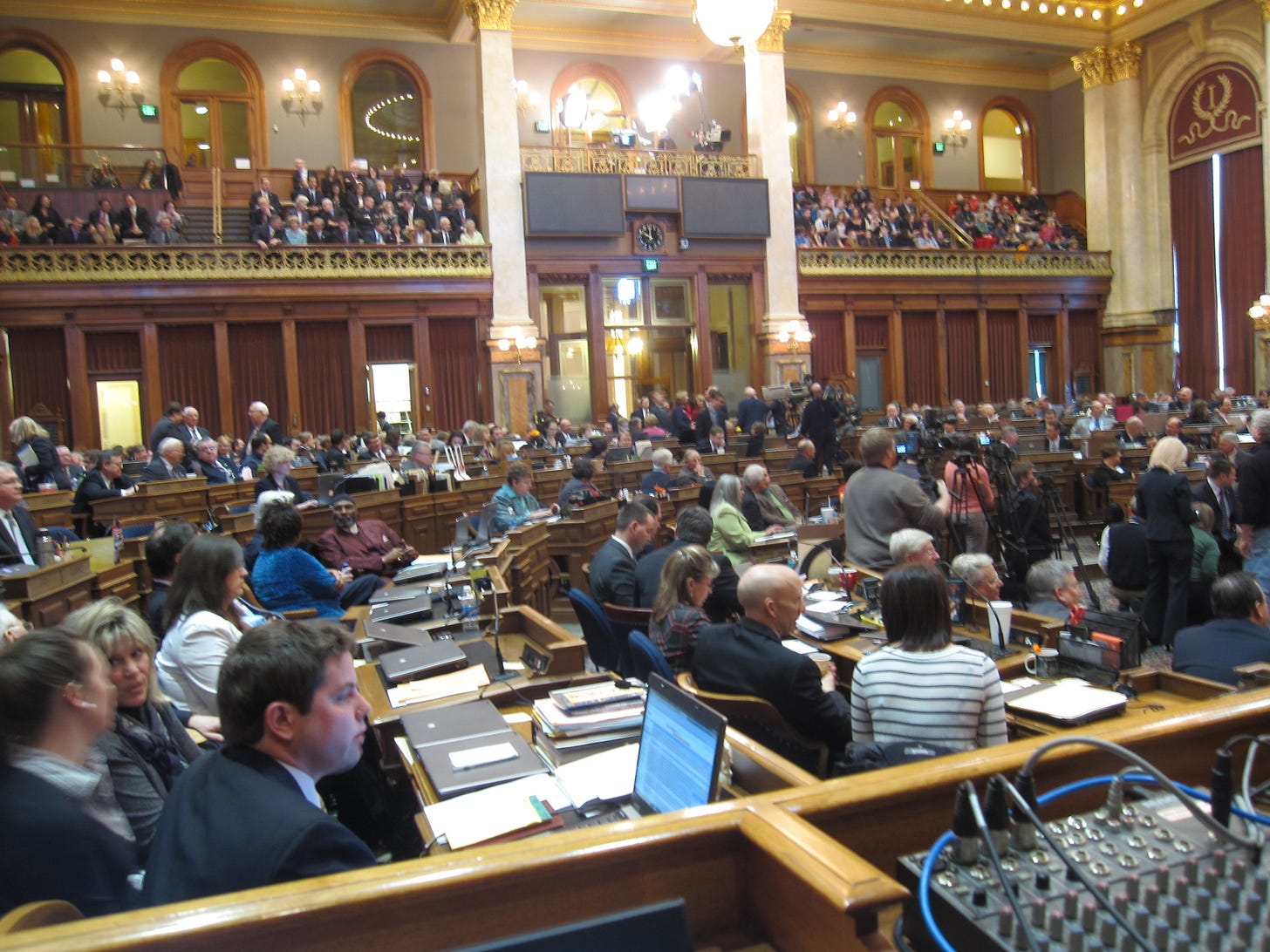Iowa must strip away barriers for ordinary citizens to become government leaders
Running for office, either at the state or local level, is too far out of reach for too many.

2022 will be an exciting year for Iowa City’s state legislative races; Senator Bolkcom and Representatives Mascher and Bohannan won’t be on the ballot. This “crop rotation” has us thinking about civic involvement and service.
Iowa prides itself on civic involvement through direct participation. We hold caucuses instead of primaries. We consider ourselves to have a “citizen legislature,” where the legislators are only part-time legislators and are regular citizens the rest of the year. We look for down-to-earth lawmakers with close community ties instead of career politicians. Or at least, we like to say we do.
But if civic involvement is a priority, we have work to do.
Iowa’s legislature is not classified as a “citizen legislature” by the National Conference of State Legislatures. It is a hybrid legislature, not quite “citizen” (part-time, little pay or support staff) and not quite full-time (full-time hours, substantial pay and support staff). It is, in many ways, the worst of both worlds, making it so that only certain kinds of regular citizens are able to serve.
The legislature is a full-time job for 4 months (in theory) each year. The pay, $25,000, has not changed since 2007. Only citizens with certain jobs--or no jobs--can leave them for those four months.
And that’s what we see. Fewer than 1 in 20 Iowans are farmers, but more than 1 in 5 of the legislators who list occupations in their bios are farmers. Nearly as many are retired. The next-largest groups include educators, business owners, and attorneys. These legislators represent occupations that can make the legislative schedule work, not Iowa’s workforce.
Further, Baby Boomers dominate the legislature. They make up over half the legislature and less than 20% of Iowa’s population. Why? They can.
Younger Iowans generally work in less secure positions and may be parents. Moreover, the legislature meets during Iowa's worst commuting months, making it extremely difficult for parents--especially single parents--outside the Des Moines metro to serve.
In contrast to state service, the Iowa City Council pays about $12,000 a year for local, part-time service that happens primarily after business hours. Likewise, Johnson County elected officials stay close to home, work full-time, and pull down salaries ranging from $84,835 (Board of Supervisors) to $158,552 (Sheriff).
The practical realities of these elected positions make them much more reachable for people who have children to care for and bills to pay. Unsurprisingly, our local government is considerably more accessible and diverse.
But even our would-be local representatives face barriers that make service more accessible to some citizens than others. Candidates for local offices are expected to have experience serving on a county board or commission, or within the departments they wish to run.
These experiences provide training in the skills needed to run for and serve in office. While those boards and commissions are numerous, they are volunteer positions. And, as the recent controversy over the Iowa City Truth and Reconciliation Commission’s request for a stipend highlighted, some people simply cannot afford that kind of volunteer time.
Fundamentally, Iowans believe in citizen involvement in our government--that is, after all, the heart of democracy. All levels of our government should therefore remove obstacles for their citizens to participate.
How? Local and state boards and commissions could reimburse childcare and travel expenses for member meetings, even if they do not pay their members. The legislature could restructure its session to allow more Iowans to take part. This might mean something as simple as regularly allowing lawmakers and members of the public to witness and participate in proceedings by video conference. It might mean something as complicated as moving deliberately toward a full-time legislature model instead of regularly “accidentally” going over the allotted time for each session.
If we are serious about being a city, county, and state led by ordinary citizens, we must make a pathway for more ordinary citizens to become leaders.
Kelcey Patrick-Ferree and Shannon Patrick live in Iowa.
A version of this piece was published in the Iowa City Press-Citizen on November 12, 2021.

